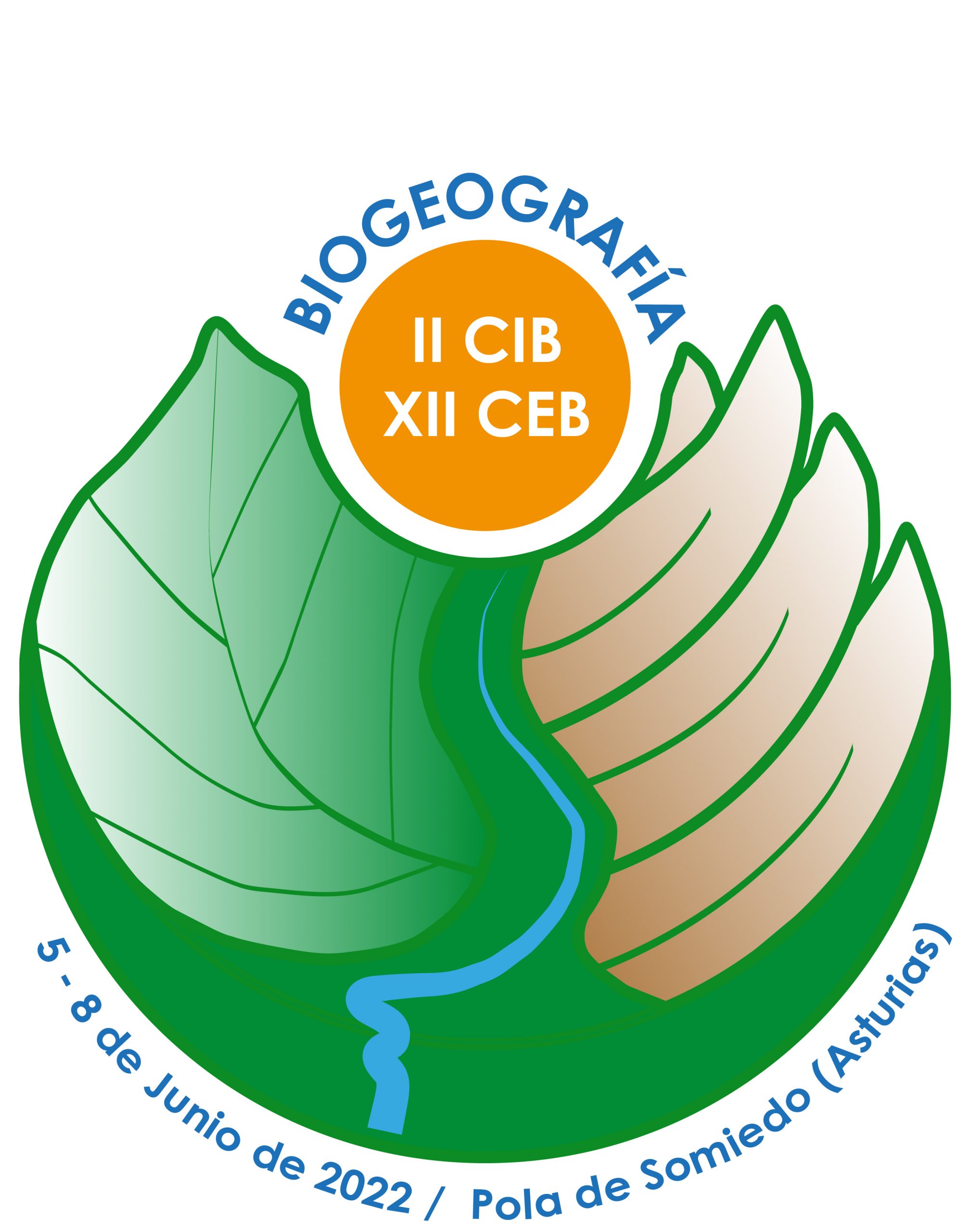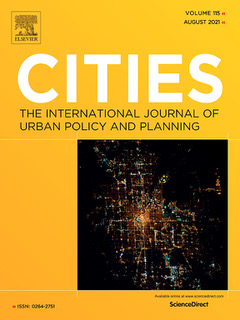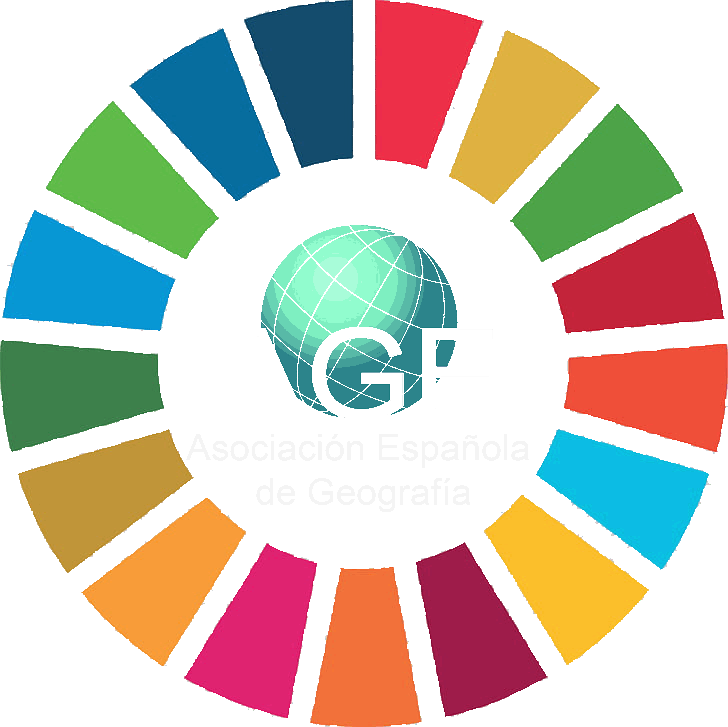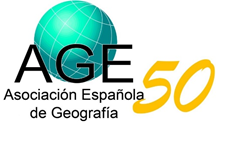
Concedido el premio Civis Javier Landaburu 2021. Derechos Humanos (XV Edición) al IES Oianguren BHI, Ordizia, Gipuzkoa
24 septiembre, 2021
II Congreso Iberoamericano de Biogeografía y XII Congreso Español de Biogeografía (Somiedo, 5-8 junio 2022)
25 septiembre, 2021Call for Papers: Special Issue «Urban Science and the Future of Sustainable Urban Systems »

Cities Journal
Guest Editors: Céline Rozenblat, Jose Lobo
Deadline: 30 November 2021
All information available on the Journal website:https://www.journals.elsevier.com/cities/call-for-papers/urban-science-and-the-future-of-sustainable-urban-systems
Summary of issue:
Humanity’s success in addressing the related challenges of climate change, sustainability, poverty alleviation and shared prosperity will be largely determined by what happens in cities. «Urban science» is now a well-defined field that is examining a shared set of phenomena across many disciplines, developing common theoretical ideas and analytical methods, treating cities and urbanization in a unified way across the globe and history. Urban areas are multifaceted entities, involving biological, social, economic, infrastructural, and cultural aspects. Individual cities, furthermore, are part of regional, national and international cities’ and regions’ systems comprising interdependent urban and rural areas and every community category between urban and rural.
This special issue aims at advancing the integration of insights long accumulated from research on cities and urban phenomena by various academic fields, and those being generated by the new field of urban science, in order to highlight current explanatory strengths and identify needed new research to better understand urbanization and sustainable urban development.
«Urban science» seeks to understand the fundamental processes that drive, shape and sustain cities and urbanization. It is a multi/transdisciplinary approach involving concepts, methods and research from the social, natural, engineering and computational sciences, along with the humanities.[1] Urban science goes further than simply stating that cities are «complex», explaining in what they are complex, by questioning the interactions between different levels of factors and why in some places they interact differently than in others. The complexity approach enlightens the different levels of forces that can explain the uneven diffusion speeds, reactions and consequences in different cities. These interactions are «universal» but take forms that are fitting to the local conditions affecting spatial and temporal scales and levels.
[1] https://papers.ssrn.com/sol3/papers.cfm?abstract_id=3526940
If «Urban science» aims at a fundamental understanding of the processes that shape and sustain cities, the ultimate applied objective of this body of knowledge must be to help create global urban sustainable systems. The website of the Proceedings of the National Academy of Sciences of the United States of America describes sustainability science as «. . .an emerging field of research dealing with the interactions between natural and social systems, and with how those interactions affect the challenge of sustainability: meeting the needs of present and future generations while substantially reducing poverty and conserving the planet’s life support systems.» Nowhere are these interactions more intense, stark, concentrated and consequential than in urban areas. «Urban sustainability» at the moment remains more a collection of methods and aspirations than a science (Waldrop, 2019). The ecological, energetic, physical, biological and social aspects of cities need to be integrated into a consistent theory, but one that grounds the treatment of cities as social systems embedded in physical and biological networks. We echo the call made in 2018 by the National Science Foundation of the USA for the development of a field of urban sustainability science that seeks to study the various opportunities and challenges that cities, urbanization and urban systems pose for the transition to sustainable and equitable socioeconomic development.[2]
[2] https://www.nsf.gov/ere/ereweb/ac-ere/sustainable-urban-systems.pdf
Technological and social developments have combined (intentionally but also as unintended consequences) to generate unprecedented amounts of data concerning what people (individuals and organizations) do when they agglomerate in cities. To some, this «big data» revolution, seemed to hold the promise of more effective urban management. But experience has reminded us, once again, that data — even enormous amounts — without associated theory to interrogate and make sense of it, does not generate predictive insights. At the same time that «urban big data» was capturing the imagination of urbanists and city managers, another intellectual movement that we refer to as «Urban science» was taking shape. A number of streams came together in this new approach to a long-standing area of inquiry: the increasing availability of diverse urban data; the realization that the city should be treated as its own unit of study (Romer); a revival of Jacobs’ view of the city as a «complex system»; the flowering of work on network science; and the growing importance of multi-disciplinarity.
By this special issue, we seek to advance the capacity of «Urban Science» to contribute to the development of urban sustainability science, and even ask whether the two emerging fields of research are in effect the same. We propose to examine a shared set of phenomena across many disciplines, developing common theoretical ideas and analytical methods, addressing cities urbanization in unified ways (but adapted on local situations) across the globe, across history, and working towards a common set of goals. A common starting point for the varied efforts that are now bundled up as «Urban Science» is the recognition, well-articulated by Paul Romer, that the city deserves, and can be treated, as its own unit of analysis. As cities and urban communities will bear the brunt of the effects of climate change and adapting to climate change, how can urban science and urban sustainability science help cities adapt to climate change?
We welcome submissions exemplifying interdisciplinary frameworks and utilizing a variety of methods such as the spatial statistics, network models, comparative historical analyses, information theory, dynamical systems, multi-agent models and econometric analyses. Authors are encouraged to address questions about the drivers and consequences of urbanization throughout history, the role of technology in urbanization, the diminished importance of transportation costs and the effect on urban occupations of the rise of digital communications, the relationship between urban development and inequality, and the relationship between urban sustainability, adaptivity and resilience. The papers are expected to formulate hypotheses and pose ambitious questions — but also to engage with why many of the questions posed by «Urban Science» are difficult to answer. Contributions to the special issue should also address the potential and urgency in researchers collaborating with varied stakeholders (including organizations representing the urban poor) in order to co-produce knowledge which is both scientifically rigorous and capable of informing decisions and policymaking.
Keywords: Urban science, Urban Sustainability Science, Cities, Systems of cities, Urbanization, Complex systems, Resilience
Thanks in advance for your interest and for diffusing this call
Best regards
Celine & Jose

